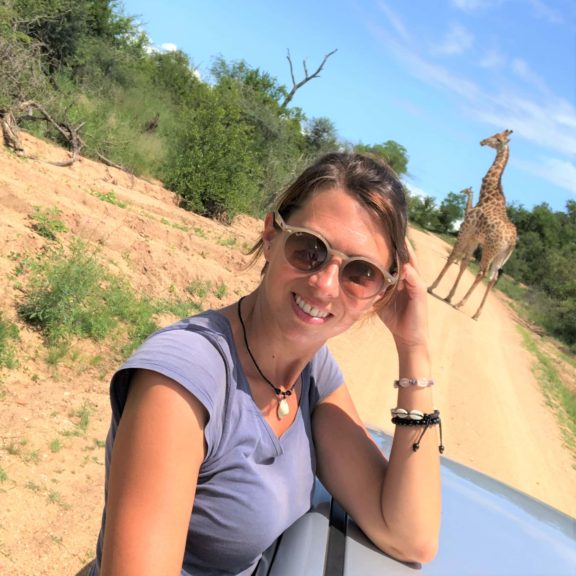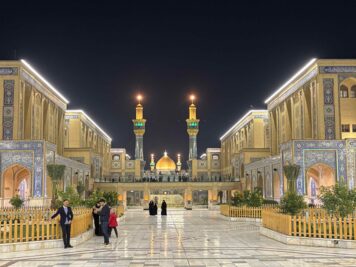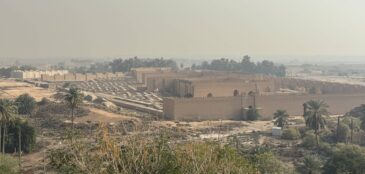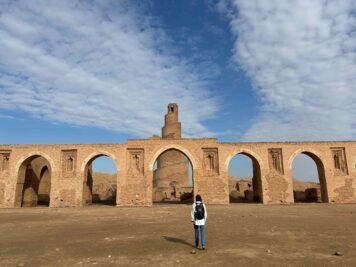It was late afternoon and I was back at Mc Donald’s in Zugdidi, where my whole Abkhazia adventure had begun. This time I was inside, without any drying laundry (and with a lot less cash but I’ll get to that), sending distraught messages to Oyv and my mom.
I needed to get moving towards Turkey but I wasn’t feeling up to it. I’d stayed in Abkhazia longer than I meant to. At first because I wanted to, and then an extra ‘unplanned’ night because I’d been robbed and was temporarily stranded while I picked up the pieces.
I’d been travelling in Abkhazia with three friends originally – two had left and we remaining two thought we’d head back to Georgia together – safety in numbers, and all that. But we didn’t feel unsafe in Abkhazia anyway, despite a couple warnings online. Certainly not in the Russian-packed beach resort towns like Sukhumi, or riding a jeep in the mountains around Gagra with all the Russian tourist families enjoying themselves doing the same thing.
But other parts of Abkhazia, particularly the south which we needed to pass through on our way back to the border, feel different. Not least when we were driven into the woods there by three men and robbed.
Tkvarcheli, a semi-abandoned former mining town in the south has a depressed sense of hopelessness which pervades the surrounding district, and it’s nothing like Sukhumi.
Tkvarcheli was hit hard during the war with Georgia. The power plant was bombed out early on, and under seige for a year the town lived without electricity. With the collapse of the mining industry and general devastation of war Tkvarcheli and the surrounding area has never recovered. For almost any intact building there’s a derelict ruin nearby, empty, overgrown and slowly crumbling.
There isn’t any public transport running to Tkvarcheli, and that’s where our troubles began. Ben and I hitched a ride from the main road with a group of happy locals (three women and two men) who were on their way to picnic at a waterfall nearby, a popular daytrip.
Everything was fine and we hopped out of their jeep in the centre of Tkvarcheli.

They drove off and it wasn’t long before we felt the town’s sketchy vibe sinking in. We wandered the deserted streets and walked some distance out of town to see the abandoned power plant.
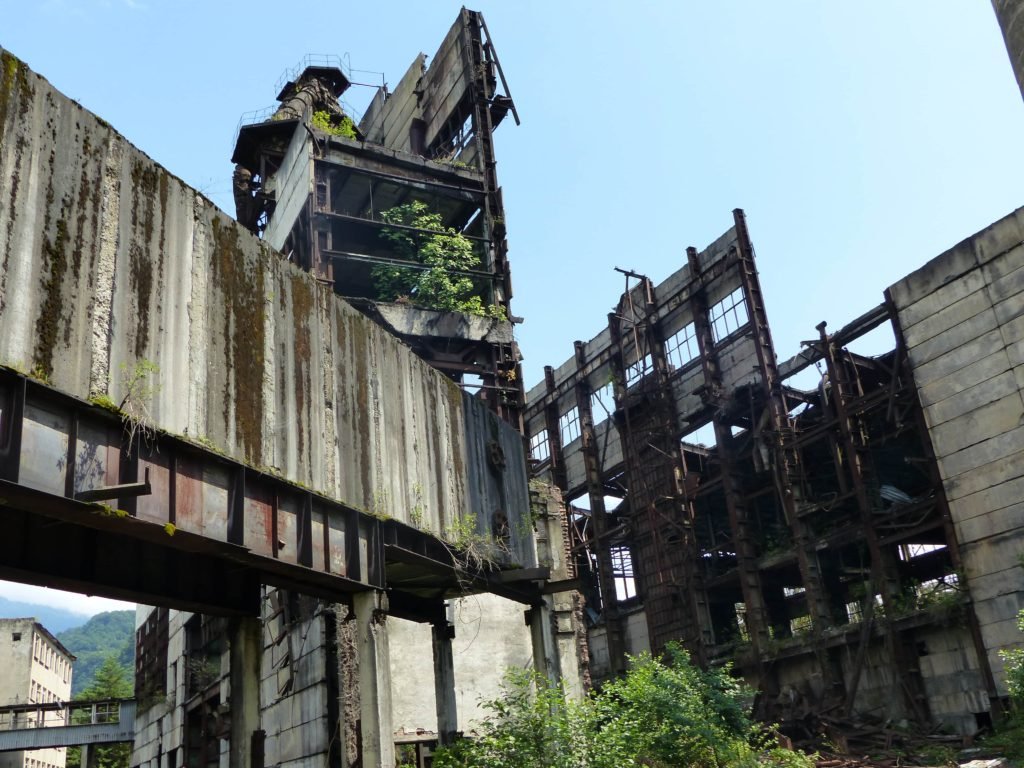
Ready to leave we went out to the road to catch a ride to the junction about twenty kilometers away, from where we knew we could get the next bus to Gali, the border-town.
We got into a passing car with one man. We’d seen him earlier in town, but didn’t think much of it. There’s a very fine line between hitchhiking and taxis in some parts of the world, and other people getting in and out of the car you’re riding in along the way is often normal. However in this case, when he pulled over and picked up two more men neither one of us liked it much – but we ignored our gut feelings, which turned out to be a huge mistake. Driving fast, the car swerved off the road and into the forest. We asked, then demanded, then pleaded to get out, and banged on the doors – but they wouldn’t open and the men sitting next to us grabbed my arms and pulled Ben back by the shirt, all the while continuing this detour into the woods.
They pulled over in a clearing and made Ben get out. One of them pushed me back into the car but I wouldn’t stay there and got out anyway. Now we saw that the other one had a knife in his hand. They patted us both down and made us unpack our bags, examining every item we took out.
Although things like this can happen anywhere in the world the problem is that in a place like Abkhazia all bets are off.
Firstly, although we’d seen some warnings that the southern part of Abkhazia wasn’t safe – they were old, and we felt secure in the rest of the unofficial country and weren’t very worried about it. We only intended to take a quick look around Tkvarcheli in the middle of the day and leave. It was a spontaneous decision we made on the bus, based on a recommendation from some Russian visitors who liked the place (and made it sound a lot more cheerful than it turned out to be). Hindsight is 20/20, but it is always better to do research first and check on the situation before going ahead.
Secondly, Abkhazia is an unrecognized and only self-proclaimed country and there are no foreign embassies present to assist their citizens in an emergency. If anything happens to your passport – you’ve got a problem. According to our own governments we aren’t really even supposed to be there and this means that regular travel insurance is also pretty much void too.
So during the robbery in the forest, together with all the other thoughts running through my mind – the fear I felt when they made us put our hands on our heads and our heads down on the trunk of the car; when they ransacked our bags and felt our pockets; when they opened the trunk and for a panicky split second I was afraid they wanted us in it – I was very conscious of our passports and of how much trouble we’d be in if anything happened to them in the course of this incident.
The men spoke to us in Russian. The only words we understood were ‘narcotica’ and ‘politsiya’, which they shouted often and to which our emphatically repeated response was ‘Nyet (no), narcotica nyet’. We think they were pretending to be police searching us for drugs, but why they even felt the need for the pretense we don’t know. Two of them periodically kicked or hit the driver, who groaned and cried in an effort to keep up the appearance that he wasn’t in on it, which we’re certain he was. They made us repack everything and get back in the car. Then we drove further into the forest, and repeated the entire frightening scene again.
In the end they took our cash and our electronics and handing back around 1500 roubles (about 23 USD), they left us in the forest surrounded by the rest of our belongings, and drove off. They gave back that bit of cash, we understood, because they wanted us to get a taxi to the border and leave Abkhazia immediately.
In a daze we pulled ourselves together and walked back out to the road. Eventually we arrived at a shop and barely managed with Google Translate to explain what had happened.
The police who turned up a long time after the shop owner finally contacted them wore camouflage pants with guns stuck in the back, driving an unmarked car with the entire front bumper torn right off and frayed wires ripped out of the steering wheel. We went with them and spent the next seven hours answering the same pointless questions over and over, going in circles, literally – they drove us from the station in Ochamchire to the one in Tkvarcheli and back, supposedly with the intent of looking for the three robbers. They left us in a dark and deserted intersection at around eleven pm with one officer to wait for another man – I have no idea who he was – to pick us up and bring us back to the station in Ochamchire.
After a while there were so many of them I started to wonder who was actually a police officer and who may have just been an interested onlooker. One of them played casually with a knife; another waved a big bundle of weed around. At one point during what was starting to feel like an interrogation, they actually threatened to keep us several days in Abkhazia – over our visa-mandated permission. Adding to the mess and stress was the fact that we had to do everything via Google Translate – it was hours before they located Olga, an old English teacher who came down to the station to act as translator.
The silver living in all of this is Oleg, a local man we’d met earlier who with his wife, had invited us to a picnic at the beach. We hadn’t even exchanged names – but I had his number and he answered the phone when I called late that night from the police station:
‘This is the girl from the bus. Do you remember me?’
‘Of course’ said Oleg (why wouldn’t he, it was that very afternoon and how many foreigners does he meet on the bus in one day).
‘We need your help, can you help us?’ I asked, and told him what happened.
‘Yes, of course I will’ said Oleg promptly, and he got in his car and drove an hour from his home to pick us up, for which I am eternally grateful. One of the officers had offered us his place but honestly I wanted to get as far away from all of them as possible.
Interestingly, at around midnight right before Oleg turned up to save the day – the two officers who’d left us at the intersection suddenly reappeared with my computer and iPad in hand. It seemed like they knew exactly where to look. There was no sign of Ben’s electronics or, unsurprisingly, any of our cash. There was no explanation for this mysterious recovery, absolutely no police report, and we left with a lot of unanswered questions.
Oleg and his wife Ludmilla fed us, gave us beds for the night and after breakfast in the morning they drove us all the way to Gali. I’d been worried about the border crossing – worried that the police had alerted the authorities there and for some reason, any reason, who knows – we’d have a problem leaving Abkhazia.
But the solider barely paid any attention to us at all and we passed through. It was with a huge sense of relief that I found myself on the Georgian side of the checkpoint – but irrationally afraid of the car and driver waiting there to carry on back to town.
Ever since we met these men and realised their intentions I’d been thinking in steps. Get out of the car. Hand over the money and electronics. Get away from the police.
At Oleg’s my mantra became, Let’s get out of Abkhazia. Then, Get to Zugdidi, find a guesthouse and chill the fuck out. But back in Zugdidi over drinks that night, neither of us was feeling good. We tried to analyse everything that had happened. And we were angry – who were these people, who not just stole from us but threatened and frightened us as well? I wished those three men all sorts of ill, and felt they deserved it too.
Worst of all, my previous inclination to trust people and assume their good intentions had been somewhat damaged. I certainly felt less-than-good about riding in cars with strangers (a regular part of a travel day). Trusting that others want to help you or at the very least, are not interested in harming you, is pretty important. If was afraid of strangers how would I go on travelling alone?
I had to get back on the horse. It was even worse than the other time on this trip when I had to literally get back on the horse in Kyrgyzstan after the one I was riding threw me and dragged me a hundred meters (yes, there have been some ups and downs, this trip).
Ben and I said goodbye at the bus station in Zugdidi and wished each other safe travels. I took a bus to Batumi and the next day I crossed the border into Turkey on a series of minibusses and boarded a train to Kayseri.
I’d had a great time exploring this unusual corner of the world, right up until the last day and I decided not to let a bad incident ruin it for me. I thought about Oleg and his wife who’d invited us to a picnic and then got a lot more than they bargained for when I called them late at night and they’d ended up with two unexpected and edgy foreign houseguests. The main thing here is that in the end we only lost money and things, which we can live without, and that the two of us are both are OK.
The train was late arriving in Kayseri. I knew I’d missed my connection and any hope of carrying on to Goreme where I’d planned to stay that night. It was 2.30 am when I disembarked in an unknown town in a country I’d only got to the day before, just days after a frightening and stressful incident that had left me in a jittery state of mind. I didn’t have a lot of options other than spreading out my sarong on the station floor and sleeping there till daylight.
I looked at this as one way to work on getting past my new, recently developed paranoia.
If You’re Considering a Visit to Abkhazia
It took me a while to write this and I’ve thought about it a lot. I’ve recently learned about a couple of travellers who experienced almost exactly the same thing as we did, in the same place, just three days before us. You can read their account of what happened, here.
I would never advise against going to Abkhazia (or anywhere else) based on a single event which took place on the last day – things like this can happen anywhere. But due to the special circumstances related to Abkhazia’s precarious status as unofficial breakaway state, and the similarities between our experience and that of other travelers so close together, if you decide to visit the southern region of Abkhazia I would suggest that you plan in advance, don’t go alone, and even better go with trusted locals who know the area. Be careful when exploring in abandoned buildings and isolated areas. It’s also important not to underestimate the seriousness of the situation you’d find yourself in if your passport was taken or lost, without any diplomatic assistance from your own country.
Read More
For more of my adventures (and misadventures) in Georgia, check out the rest of my stories from the road.
